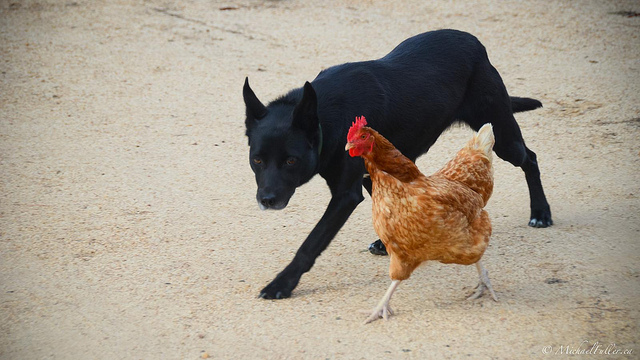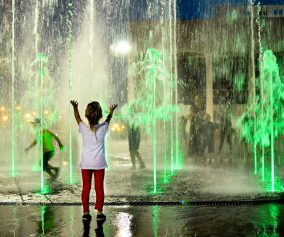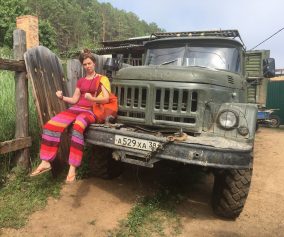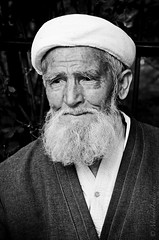Us and Them
We’re taught from a very young age about us and them. Your family, friends, teachers, that nice neighbour who gives you ice cream (why don’t I still have those neighbours?). These are us. These are good people. You can trust and feel safe around them.
But the flipside of us are all those who are not us — the yin necessitates a yang.
Consequently there are people we’re taught, whether explicitly or otherwise, not to trust, not to speak to, and to regard carefully and suspiciously. This concept of us and them runs deep. We evolved in small groups amongst those who were mostly family: We looked, ate and spoke alike. We had common enemies or competitors. Our ancestors existed like this for tens of thousands of years. So the predisposition to ‘othering’ is not easily unlearned.
Nor should it be.
Instead, to be comfortable talking to strangers when travelling a foreign land, we need to expand our idea of us. We need to include people who don’t look like us, eat like us, or speak like us. This sounds hard, but don’t worry! I’ve got some simple ways to start, and they don’t even require you to eat a fetus egg to fit in (though this is a great option… when you’re ready).
These subtle changes to your routine will start expanding your idea of us to include a great majority of people on this Earth. And you’re going to make some new friends in the process, I know it.
Here are my three tips:
1) Acknowledge other people’s existence — their status as fellow human beings.
How? Make eye contact with everyone as you walk around. Smile, even if its the slightest crescent. These tiny actions alone can break down barriers; I have been approached by so many friendly, interesting, or helpful people while traveling. Why me? I asked.
“Because,” they say, “you looked open“.
2) Learn the basic greetings. The more obscure the phrase or dialect, the better!
People all over the world get a real hoot from hearing foreigners greet them with more than ‘Hello’. Not only will you make them smile and laugh, you will also show them that you respect their culture and language enough to learn some of it.
3) Put yourself in situations that show you’re not an other.
Let’s be honest, nobody is ever going to mistake you for a local. Yes, even with your llama hat and alpaca sweater. So don’t forget the other half of this game: helping strangers be comfortable talking with you. Help local people feel us-ish too.
What are some examples? Use public transit. Go find where locals hang out. And ask people not where you should eat, but where they like to eat. Whisking yourself exclusively from private cars to private hotel rooms to private tours is like turning the world, and local people, into your zoo. Doing us-ish things will not only save you heaps of cash and create serendipitous experiences (two of my favourite things!) it’ll show that despite your skin, clothes, and language, you are just another human.
Just another one of us.
So that’s it! Three simple tips on how to speak to strangers: 1. Make eye contact with a friendly face. 2. Use local greetings (the more obscure the better). 3. Travel and eat like the locals.
Though you’ll find that many of my other posts can also help with talking to strangers, these are some fundamental starting points for respecting and connecting. Please add any other simple tips below.
Let me know how it goes. And the whereabouts of any neighbours giving out ice-cream.
























Good info….in my little travels of the world the greatest barrier was broken when I travelled with children…..go figure….children have a universal connection without barriers and so as an adult you get to come along…everyone is friendly, smiling and helpful…was such an eyeopener.
Children, and puppies! Amazing isn’t it? They’re like kryptonite against people’s adult rigidity, in our own culture. Imagine if instead we could all embrace our inner child, all the time. How lovely would public interactions be?
I lived in a town in Costa Rica called Heredia where every Sunday I would go to the Church Square or park just to sit and read. Being a blonde haired “macha’ blue eyed lady I was immediately set upon by the kids so they could practice their English. The more I talked with them, the more the crowd grew around me. It was the best time of my week. They were like sponges and we laughed and sang and they were not shy in showing their appreciation with hugs. When they were leaving their parents always showed their respect saying ‘gracias profesorra’ so simple a compliment but meant so much.
What a beautiful story. Did you get to do this regularly? I guess you wouldn’t get much reading done :P
I love the parents reaction!